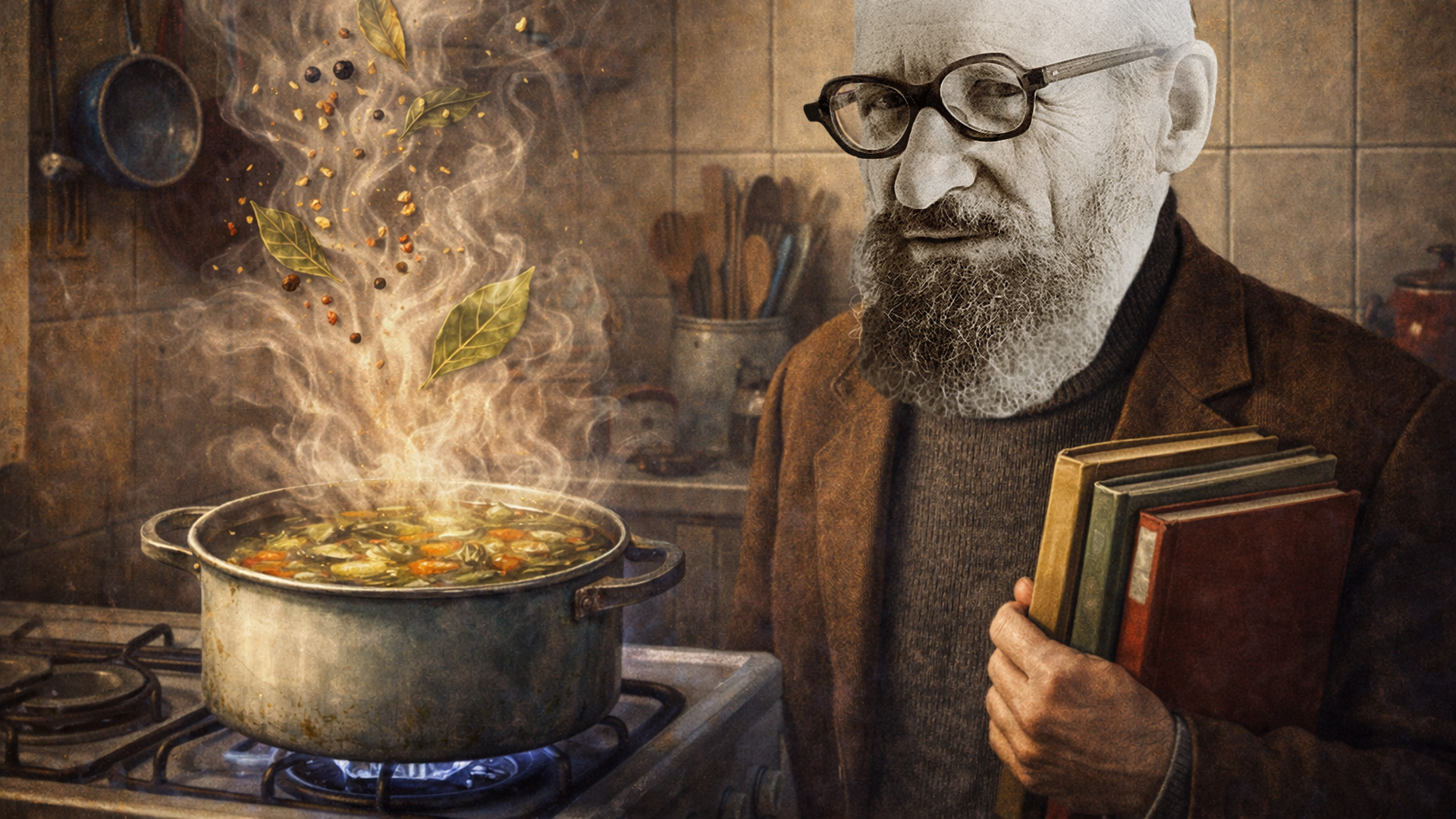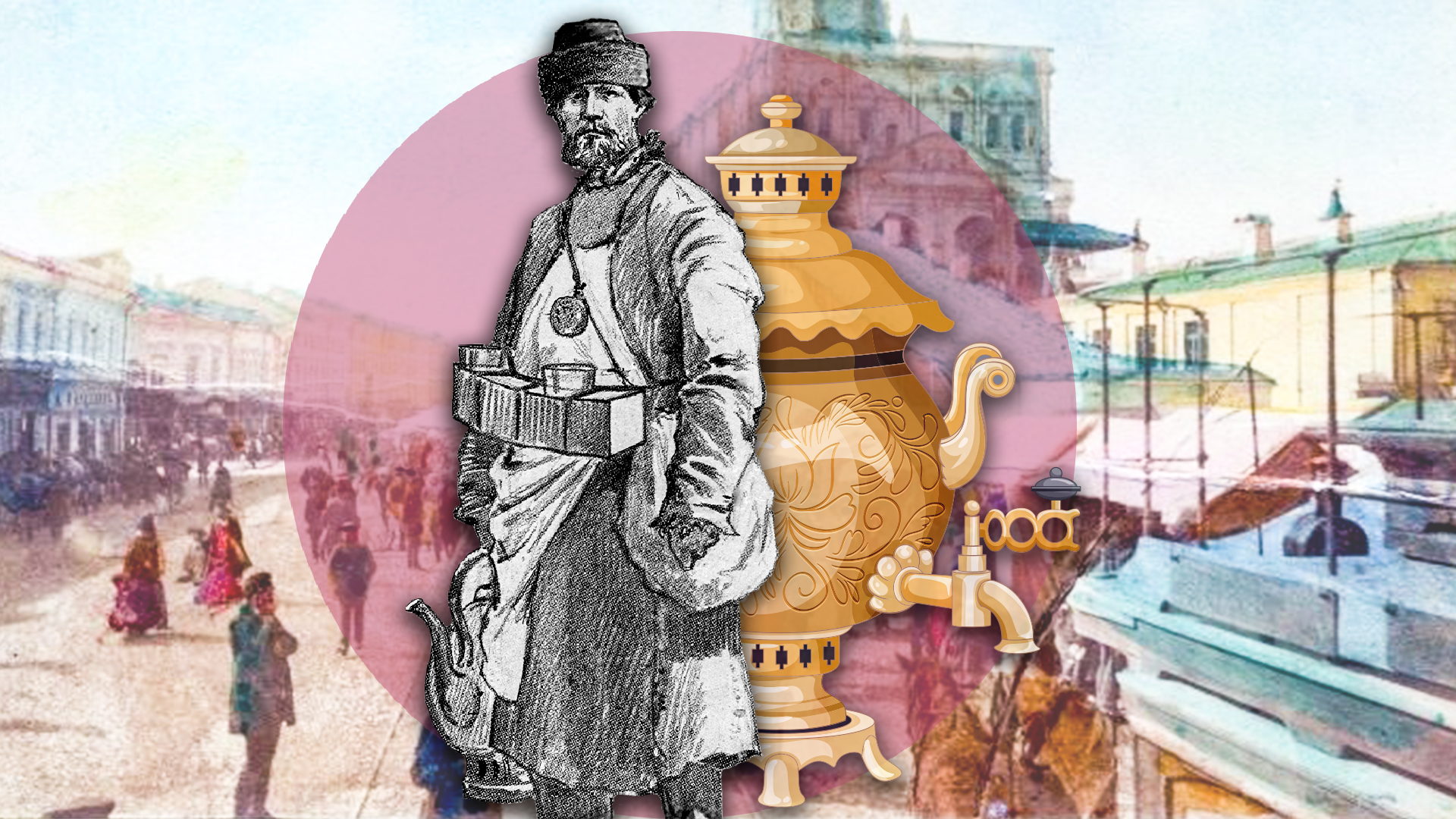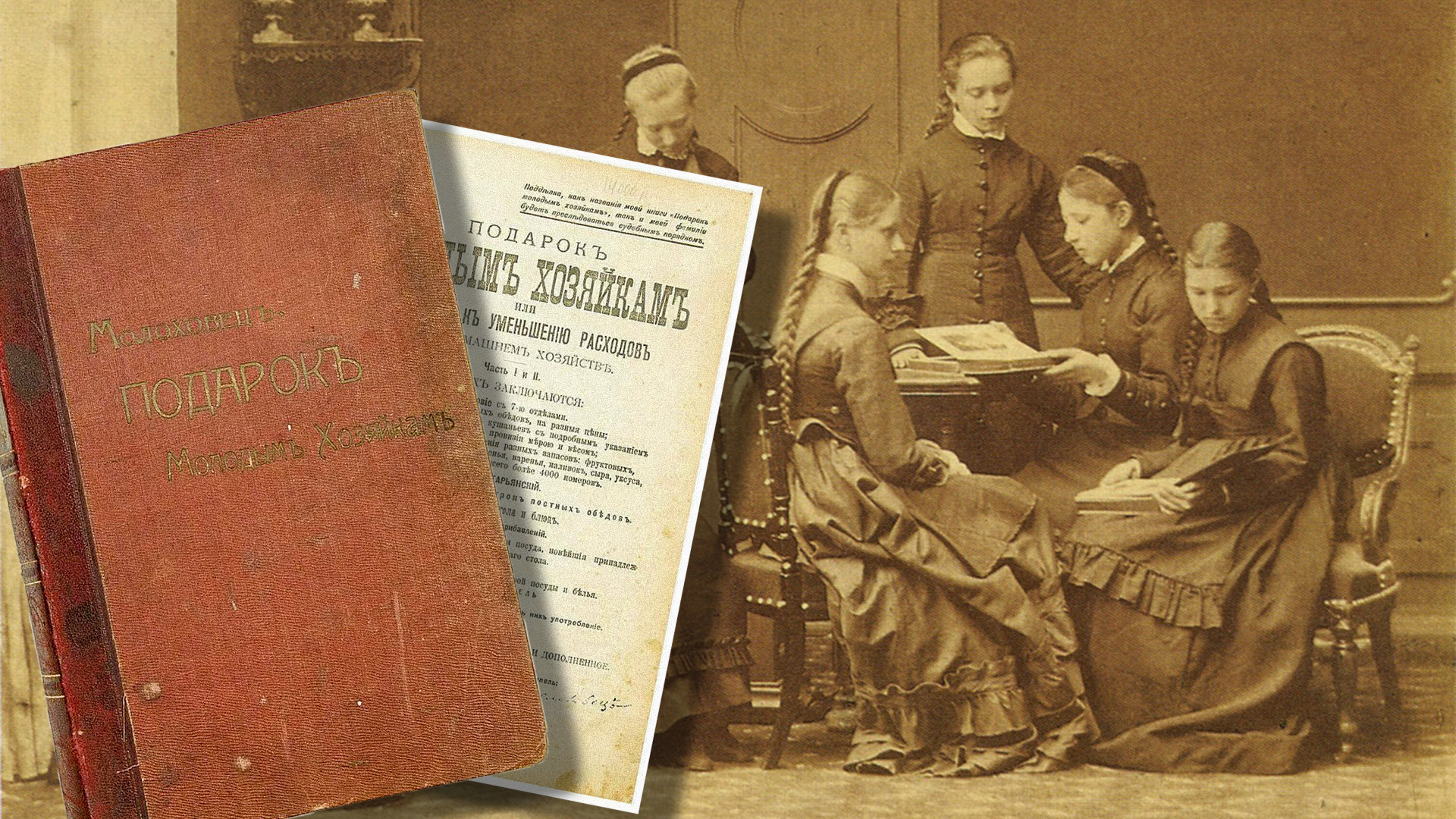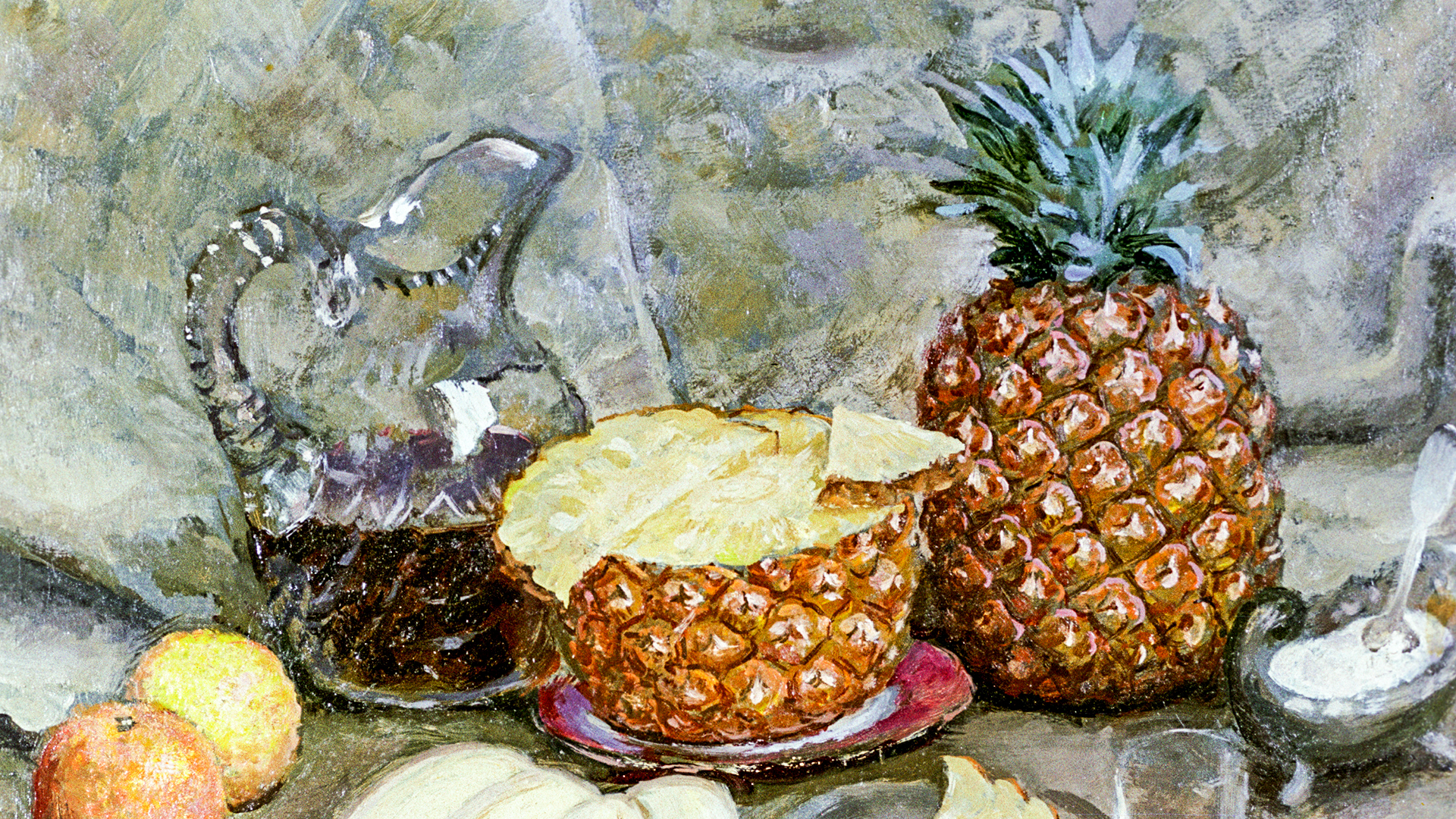
What do Russian train passengers eat?
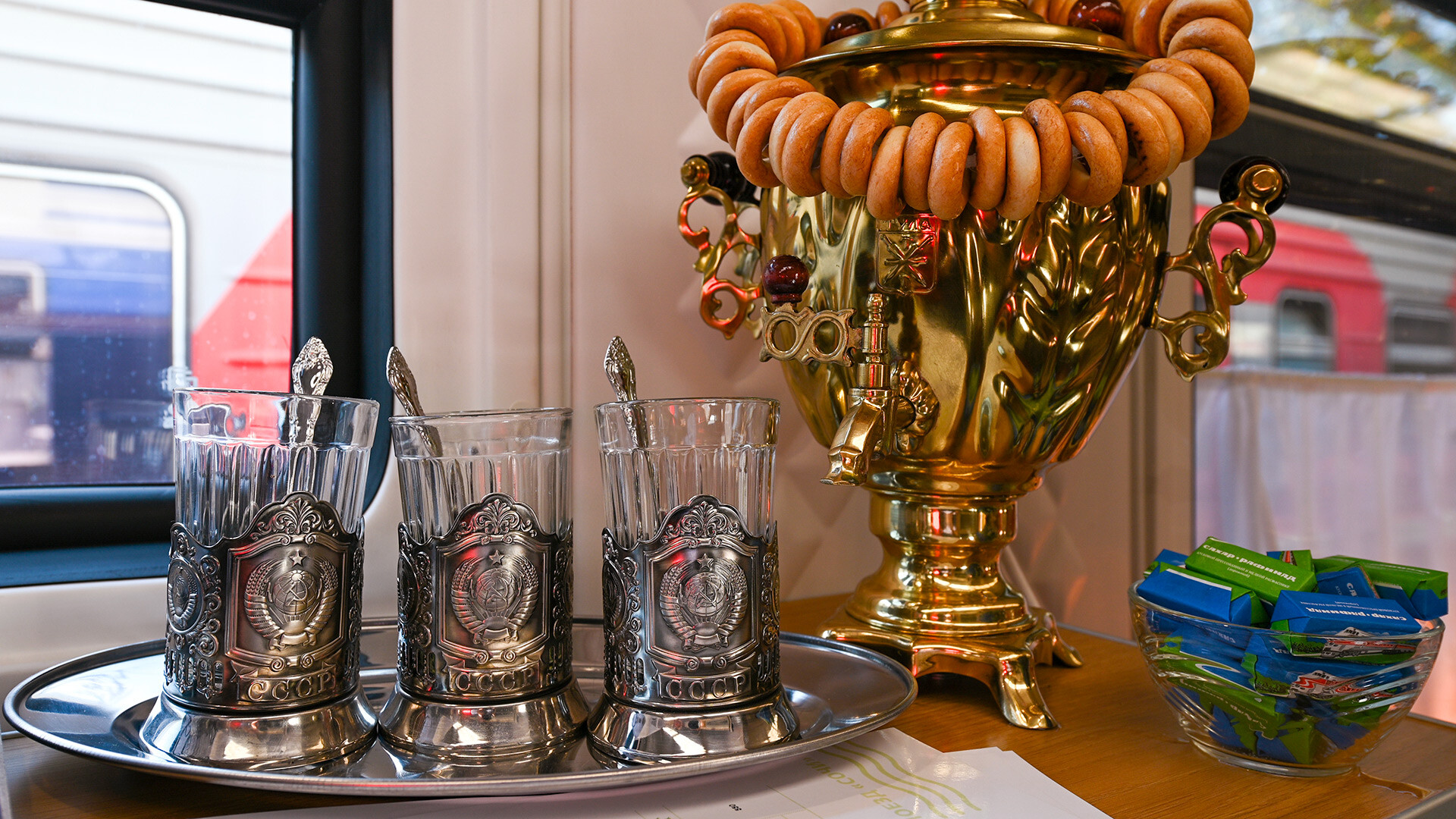
A train trip in Russia can last from a couple of hours to several days. For example, you can go to St. Petersburg from Moscow on a high-speed train in four hours; however, a trip along the Trans-Siberian Railway, from Moscow to Vladivostok, will take seven days. Despite the fact that some passengers purchase tickets with hot meals served on the train or go to eat in the dining car, most passengers still take homemade food along on long trips, simply because it’s a tradition.
The most popular food on a train
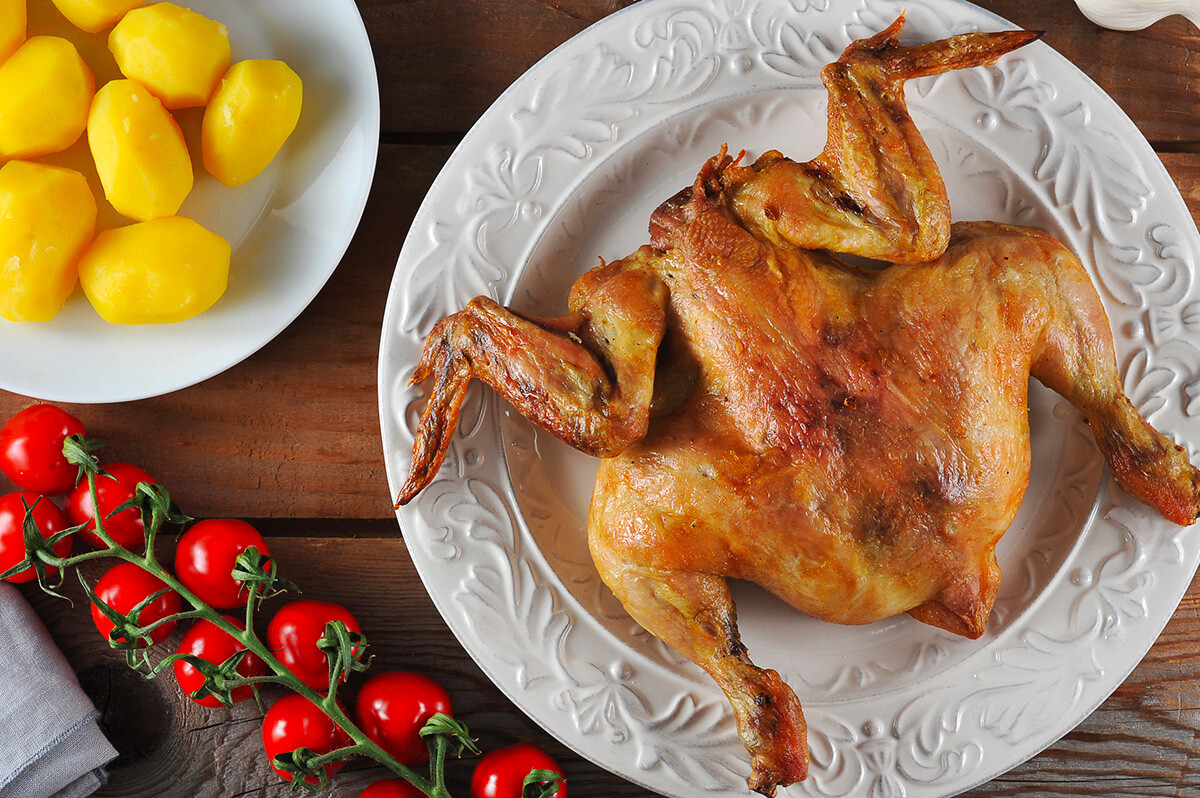
“My father often went on long work trips on a train. My mom would prepare a whole bag with food for him. It necessarily included a dry-cured sausage that was dried even further, salted or smoked salo, and canned food. For the first couple of days she prepared home meals for him, which she instructed him to eat first,” is how a user with the handle Feeriya described the railway gastronomical romance on a Russian internet forum. We have to admit that nothing has seriously changed in railway food preferences over the past few decades.
Most often while traveling on a train people take along sandwiches with sausage or cheese and some sweets for tea. What kind of a railway trip would it be without tea in a pretty metal tea glass holder, offered by a train conductor?
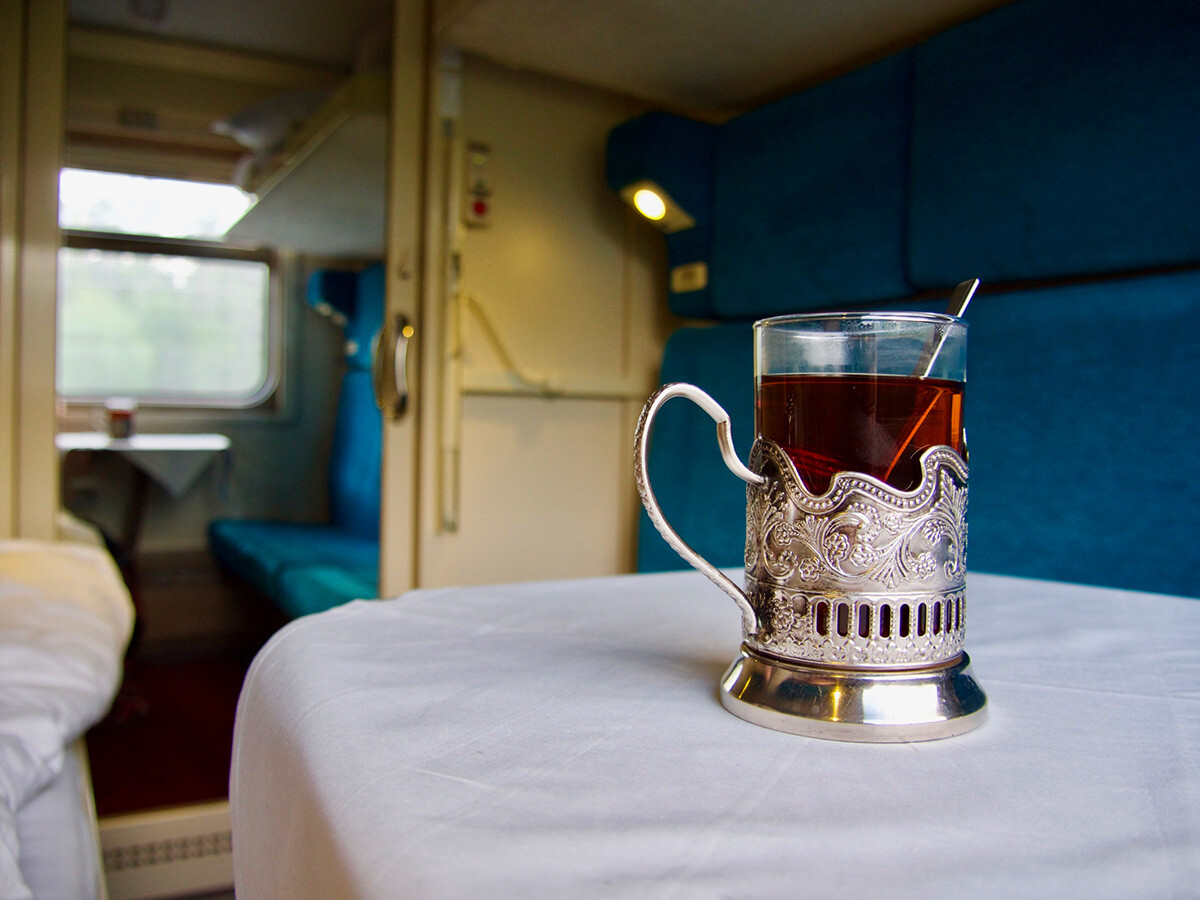 Podstakannik, a uniquely Russian glass holder.
Podstakannik, a uniquely Russian glass holder.
As for more serious food, the choice usually falls upon boiled potatoes (with skin or without skin), along with roasted chicken or a rissole. Sometimes, instead of potatoes, people take along boiled rice or buckwheat. The classic range of food is supplemented by boiled eggs and fresh vegetables – tomatoes and cucumbers.
As Soviet authors Ilya Ilf and Yevgeny Petrov joked in their satirical novel The Twelve Chairs: “Passengers eat a lot. Ordinary mortals do not eat during the night, but passengers do. They eat fried chicken, which is expensive, hard-boiled eggs, which are bad for the stomach, and olives.”
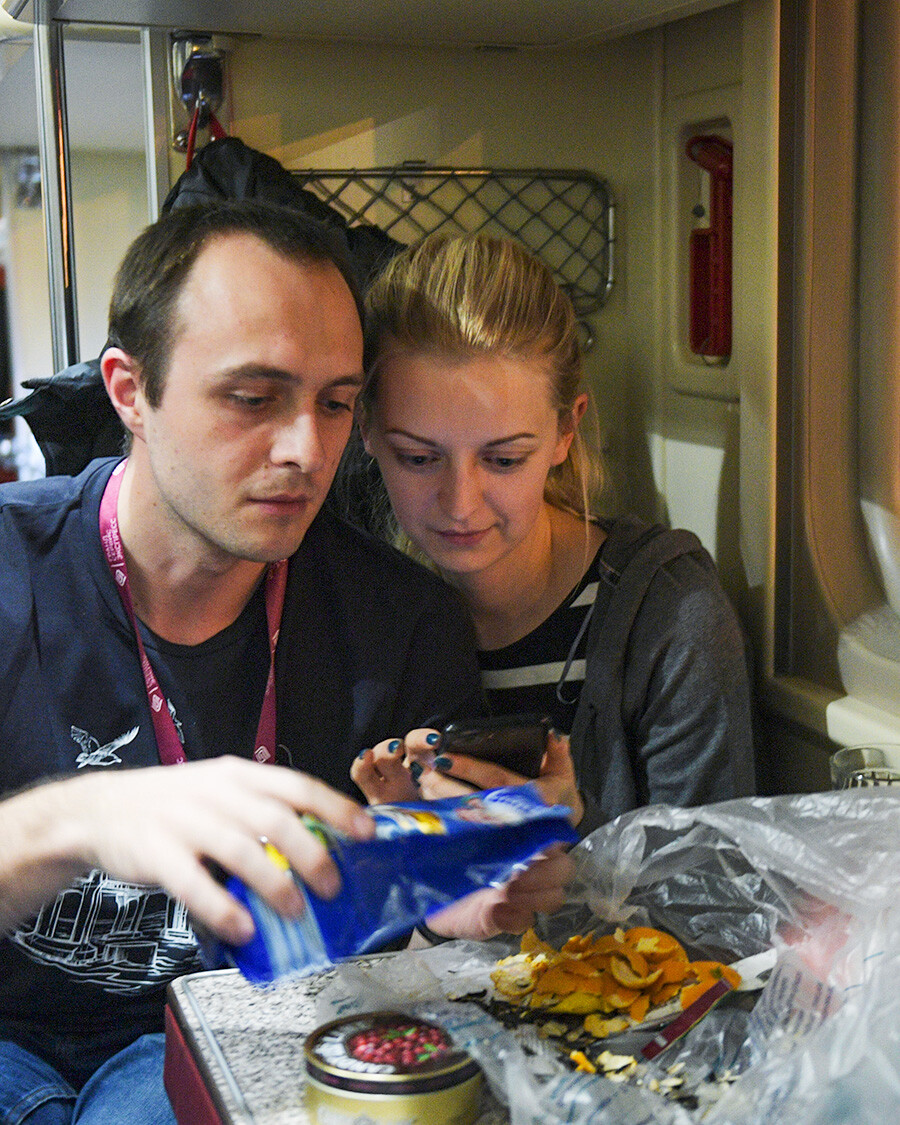 Passengers in the train St. Petersburg - Sevastopol.
Passengers in the train St. Petersburg - Sevastopol.
Apart from chicken and eggs, instant meals have gained popularity lately – noodles, mashed potatoes, and soups — which one prepares by simply pouring in some boiling water and stirring well.
Finally, of course, all sorts of snacks are always on hand – potato chips, croutons, cookies, nuts, and dried fruit.
Buying food on a train platform
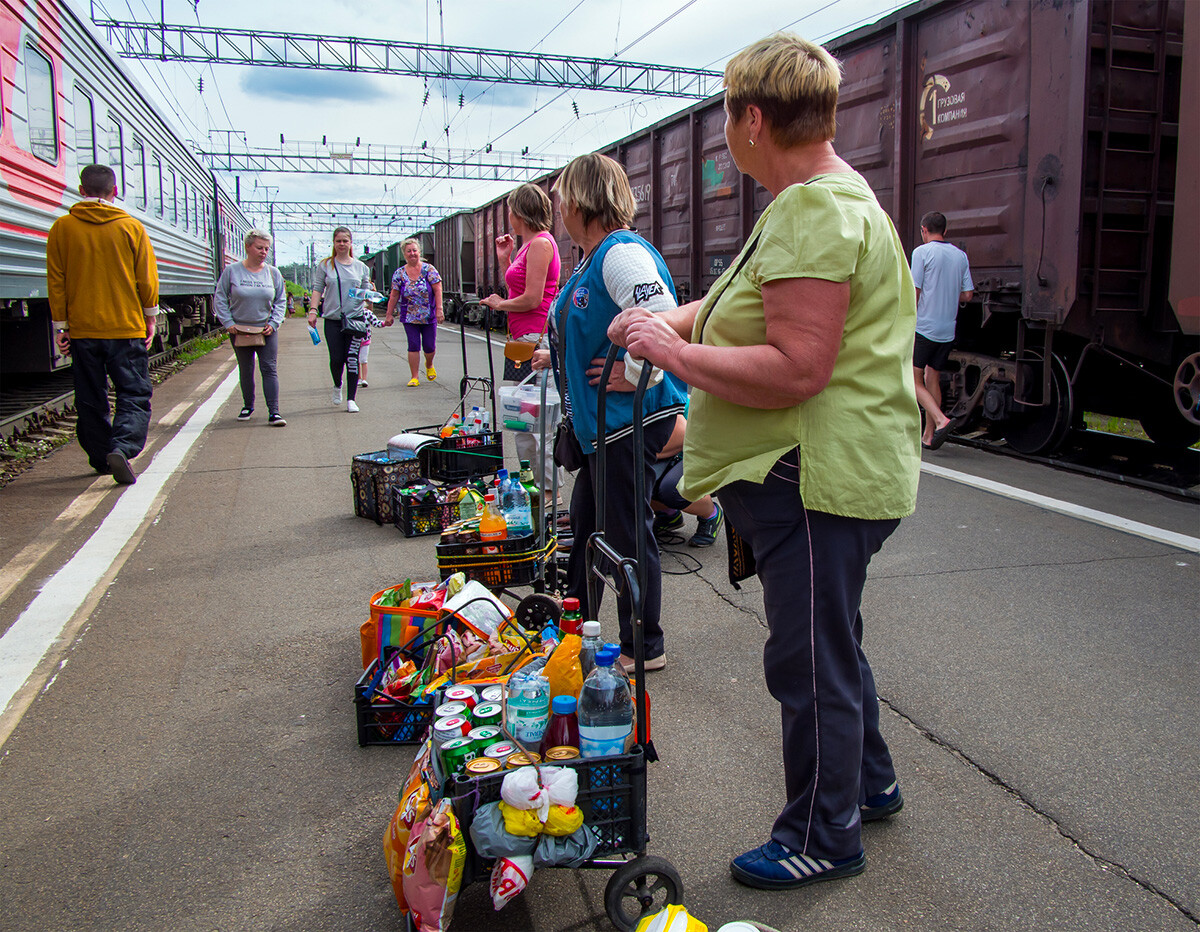 Local sellers on a train platform.
Local sellers on a train platform.
During train stops, passengers buy food from the locals, even if it’s not entirely legal: fried pirozhki, chicken and rissoles, seasonal fruit and vegetables, honeybread, honey and jam. The assortment depends not just on the season but also on the direction where the train is going.
If your train is heading south, the locals will definitely offer you tomatoes, melons, watermelons, peaches, apples, and pears; which means everything that their gardens are full of during this season of the year. They’ll also have some local wine. Most likely, they’ll let you taste it before selling it. Fresh cow or goat milk, cottage cheese, and sour cream — are some items that they’ll bring to a passing morning train.
If your train is heading north towards St. Petersburg or Karelia, then you can buy whatever is in season – mushrooms, lingonberries, cranberries, and blueberries, as well as local fish (for example, a bream or an eel).
The road towards Lake Baikal is also rich with fish – people here buy salted or dried omul, and hot-smoked grayling.
During train travel in practically every direction you’ll find babushkas selling pirozhki, with both savory and sweet fillings.
 A favorite Russian comfort food is filled pies, which can be made either big or small and stuffed with a wide variety of fillings.
A favorite Russian comfort food is filled pies, which can be made either big or small and stuffed with a wide variety of fillings.
“Pirozhki are the most ‘railway food’ there is,” said Elena, who often travels by train, “Both homemade or store-bought. People who go on work trips, who often travel by the same route, can already tell you where to find proper babushkas with proper pirozhki on railway stations.”
You don’t even need to step out of your train car to buy some of these pies, the sale of which is often done through a half-opened window. However, be warned – no one takes responsibility for the quality of this food. In the slight chance that the quality is substandard, a first aid kit with some stomach medication might come in handy.
The most inappropriate and even irritating foods

Of course, no one can prohibit passengers from eating their own chicken, pickles, or borscht with garlic on a train. But we have assembled a list of food that you should better leave at home. Or, at least, enjoy them in a dining car:
- Garlic – due to its harsh smell.
- Mandarins – their smell doesn’t just irritate, but also causes a burning desire to consume those mandarins.
- Canned beans with sauce – because of the indigestion of the bean lovers later.
- Smoked fish and herring – because of their strong smell that usually quickly spreads throughout the entire train car.
- Dairy – it quickly goes bad without a fridge. If you really want to take along kefir or yogurt, it’s best to consume them within the first hours of the trip.
- Cream-filled pastry. Such pastry can quickly go bad in warm conditions and lead to food poisoning.
READ MORE: Fish rasstegai: Essential appetizer pies on a Russian table (RECIPE)


